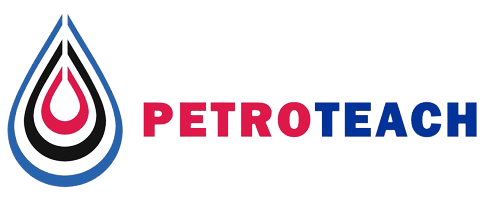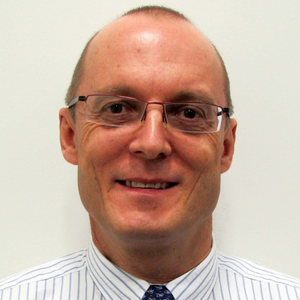RES 423
Integration of Geomodelling, Flow Simulation and Economics in Field Development



| Code | Date | Location | price (€)* |
|---|---|---|---|
| RES 423 | 12 - 16 May 2025 | Online | 1990 |
| RES 423 | 4 - 8 Aug 2025 | Online | 1990 |
| RES 423 | 13 - 17 Jan 2025 | London | 3990 |
| RES 423 | 7 – 11 Jul 2025 | Stavanger | 3990 |
* Prices are subject to VAT and local terms. Ph.D. students, groups (≥ 3 persons) and early bird registrants (8 weeks in advance) are entitled to a DISCOUNT!
This course is 90% practical work where participants will have the opportunity to apply in detail what they have learned in the “Geomodelling, Flow Simulation, Economics & Uncertainty in Field Development Planning” by constructing from scratch, a static and dynamic model of an offshore field which has several reservoirs some with undersaturated oil, others with gas caps.From the constructed static models, participants will learn how to compute in place resources (Oil, Associated gas and free Gas) before moving onto the dynamic part of this course, and simulate flow in the various reservoirs. Based on the drive mechanisms, participants will be expected to test various development scenarios of vertical versus horizontal wells, well placements (producers and injectors) and analyse oil evacuation options (pipeline versus FPSO) as well as different gas handling solutions.
Having determined the optimal Field Development Scenario, students will learn how to estimate Reserves, and run full costings and economics (cashflow model) and determine key Economics metrics (NPV, IRR, etc.) the exercise includes a Risk/ Ranking and a Final Investment Decision (FID). This module runs on PETREL, PETREL RE and ECLIPSE or FRONTSIMS Simulation software (All Schlumberger Products). Students will therefore be expected to have a basic knowledge and familiarity with these applications.
Full dataset, instructions and guidelines are supplied (which the student gets to keep). Each day begins with a 1 hour (maximum) lecture to help the students begin their day’s work and assignment.
o Review Field Data Supplied
o Prepare Workflow Schedule
o Complete Static Model
o Facies Modeling
o NTG & Porosity Modelling
o Porosity & Permeability Law
o Kh & Kv Modelling
o Sw Modelling
o Resource Estimates (Oil, Ass. & Free Gas)
o Move to Dynamic Modeling
o Initiate Model
o Field Development Planning
o Vert. vs. Hor. Well Scenarios
o Number of Wells (producers/ Injectors)
o Optimal Well Placement
o Gas Handling Scenario
o Production Profiles
o Recoverable Resources (Oil, Ass. & Free Gas)
o Compare to Static Model
o Finalise FDP
o Finalise Production Curves
o Run Economics
o Oil price model & Income
o CAPEX/ OPEX/ ABBEX
o Royalties & Taxes
o Cashflow Modelling/ Simulation
o Economic Metrics & Benchmarking
o Complete Economics
o Complete Presentation
o Present Results, conclusions & Recommendation

Jean-Marie Questiaux has over 40 years’ experience in Oil and Gas Industry covering onshore and offshore Exploration and Production, specialized in the Integration of Geomodelling and Reservoir Engineering; Field Development, Project Economics and Risk Evaluation (Technical & Economics). Former Positions held include Exploration Manager in Libya & Angola (PetroFina) Exploration Manager in Bolivia (Total) and Subsurface Technical Director Nigeria (Addax), Teaching Fellow. Institute of Petroleum Engineering (Heriot Watt University). Specialized in Integrated Studies associated to Field Developments (Green and Brown Fields) integrating G&G, Petrophysics, Reservoir Engineering, Production Technology; Resource Estimation & Project Economics. He is expert in Subsurface Project Set-up, Management, Review and Sanctioning, Corporate Strategy, Short & Medium-Term Business Planning (Production & Reserves) and Integrated Technical Work Program (ITWP).
The course is designed for Petroleum Engineers, Drilling Engineers, Geologists, Petrophysicists, Geo-modelers and Reservoir Engineers.
o Intermediate to Advance
Participants will learn:
o Construct a static and dynamic model that they can flow and use to design a Field development Plan
o Fluid contacts, transition intervals, drive mechanisms and their impact on the number of well and their placements (Producers and Injectors). Flow Performance and Productivity.
o Various scenarios and test them in a flow simulation
o Familiarize with Flow simulation outputs and what they mean
o Determine Resources in Place and Recoverable and their range
o Finalize the FDP: Platforms (size and number) Number of wells (Producers/ Injectors) Types of wells (Vertical versus Horizontal); Oil evacuation (Pipeline/ FPSO). Gas handling (Flare/ Re-inject/ Export) etc.
o Assess all Costs (CAPEX/ OPEX/ ABEX). Asses Income, Royalties & Taxes
o Run a cashflow simulation and determine key Economic metrics (NPV/ IRR etc.)
o Assess technical and economic merit/ risks of this Field Development and rank them.
o Defend merits of their proposed Field Development Plan before Peers
Registration is now OPEN!
* Prices are subject to VAT and local terms. Ph.D. students, groups (≥ 3 persons) and early bird registrants (8 weeks in advance) are entitled to a DISCOUNT!
For more details and registration please send email to: register@petro-teach.com
Would you like a PetroTeach training course delivered at a time or location to suit you?
click for request in house